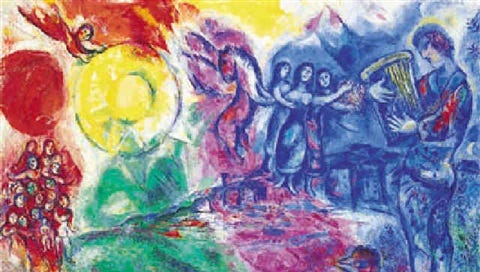‘Sing the Truth and Name the Liars’
I have to imagine people will be trying to fashion the story of the previous week for the next hundred years. So I can’t say that I know what to make of it or what to do with it. Epic climate change legislation and the FBI retrieving sensitive/compartmented documents from a former president who refused to give them up. The spring of hope, the winter of despair, etc. etc.
Fittingly, Salman Rushdie spoke on such things just a few months ago. I’m going to give him the floor:
“We are engaged in a war of narratives, of incompatible versions of reality, and we need to learn how to fight it. A tyrant has arisen in Russia and brutality engulfs Ukraine, whose people, led by a satirist turned hero, offer heroic resistance and are already creating a legend of freedom. The tyrant creates false narratives to justify his assault—the Ukrainians are Nazis and Russia is menaced by Western conspiracies. He seeks to brainwash his own citizens with such lies.
Meanwhile America is sliding back toward the Middle Ages, as white supremacy exerts itself not only over black bodies, but women’s bodies too. False narratives rooted in antiquated religiosity and bigoted ideas from centuries ago are used to justify this, and find willing audiences.
In India, religious sectarianism and political authoritarianism go hand in hand, and violence grows as democracy dies. Once again false narratives of Indian history are at play, narratives that privilege the majority and oppress minorities, and these narratives, let it be said, are popular, just as the Russian tyrant’s lies are believed.
This is the ugly dailiness of the world. How should we respond? It has been said, I have said it myself, that the powerful may own the present but writers own the future, for it is through our work—or the best of it, at least, the work that endures—that the present misdeeds of the powerful will be judged. But how can we think of the future when the present screams for our attention, and if we turn away from posterity and pay attention to this dreadful moment, what can we usefully or effectively do? A poem will not stop a bullet. A novel cannot defuse a bomb. Not all satirists are heroes.
But we are not helpless. Even after Orpheus was torn to pieces, his severed head, floating down the river Hebrus, went on singing, reminding us that song is stronger than death. We can sing the truth and name the liars. We can stand in solidarity with our fellows on the front lines and magnify their voices by adding our own.
Above all we must understand that stories are at the heart of what’s happening, and the dishonest narratives of oppressors have attracted many. So we must work to overturn the false narratives of tyrants, populists, and fools by telling better stories than they do, stories in which people want to live.
The battle is not only on the battlefield. The stories we live in are also contested territories. Perhaps we can seek to emulate Joyce’s Dedalus, who sought to forge in the smithy of his soul the uncreated conscience of his race. We can emulate Orpheus and sing on in the face of horror, and not stop singing until the tide turns, and a better day begins.”
Sing on, friends.




